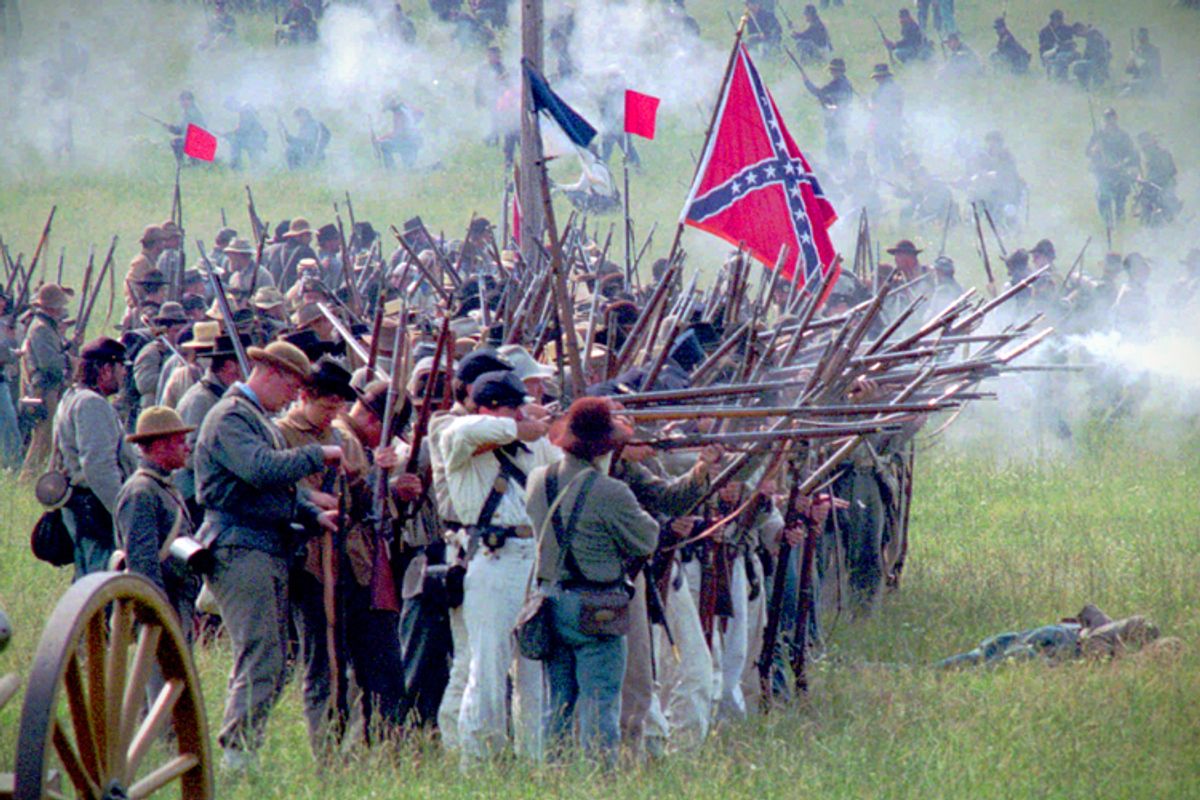There are a lot of complaints that have been lodged about the way we teach history in the U.S., but this is a new one: A member of the Colorado Board of Education has a problem with the way her state's AP U.S. history courses portray slavery. It's just too negative!
Pam Mazanec, a businesswoman and representative for Colorado's 4th congressional district on the state's board of education, shared her opinions about the state's AP U.S. History curriculum last week, jumping into an ongoing Facebook discussion among members of the Douglas County School District. According to Talking Points Memo, Mazanec first raised the possibility that the curriculum was shaped by people with a particular (and, likely in her view, disagreeable) "agenda." She then went on to say that the current course framework does too much to "downplay our noble history" -- particularly with regard to the institution of slavery, which she says the U.S. ended "voluntarily." That "voluntary" end to brutally violent, racist forced servitude is also evidence of American exceptionalism, by the way:
I have read the framework and the sample test and my concern is an overly negative view of our history and many of our historical figures (if mentioned). I think our students deserve to have all perspectives -- include the negative viewpoints on the motivations [sic], but also the positive viewpoints. If we want our students to be able to craft an argument and provide evidence, they should be exposed to more than one viewpoint. [...]
I've spoken with some history professors with very impressive credentials who told me this new framework doesn't surprise them and is aligned with the content of college level history courses that downplay our noble history and accentuate the negative view. As an example, I note our slavery history. Yes, we practiced slavery. But we also ended it voluntarily, at great sacrifice, while the practice continues in many countries still today! Shouldn't our students be provided that viewpoint? This is part of the argument that America is exceptional. Does our APUSH Framework support or denigrate that position?
A few follow-up questions: Did Mazanec ever take AP U.S. History, or any U.S. history course? Did she learn about the Civil War? How does she define the word "voluntary"? Does "volunteering" often include years of violence and bloodshed and literally fighting to death to protect an institution larger than oneself -- for example, slavery?
Mazanec's colleagues on the board do not appear to be thrilled. "I vigorously disagree with her comments," Elaine Gantz Berman, another member of the Colorado board, told TPM. "I'm actually embarrassed that a member of the state board of education would represent the ending of slavery the way she chose. It clearly is uninformed, and I'm appalled by her comments."

Shares